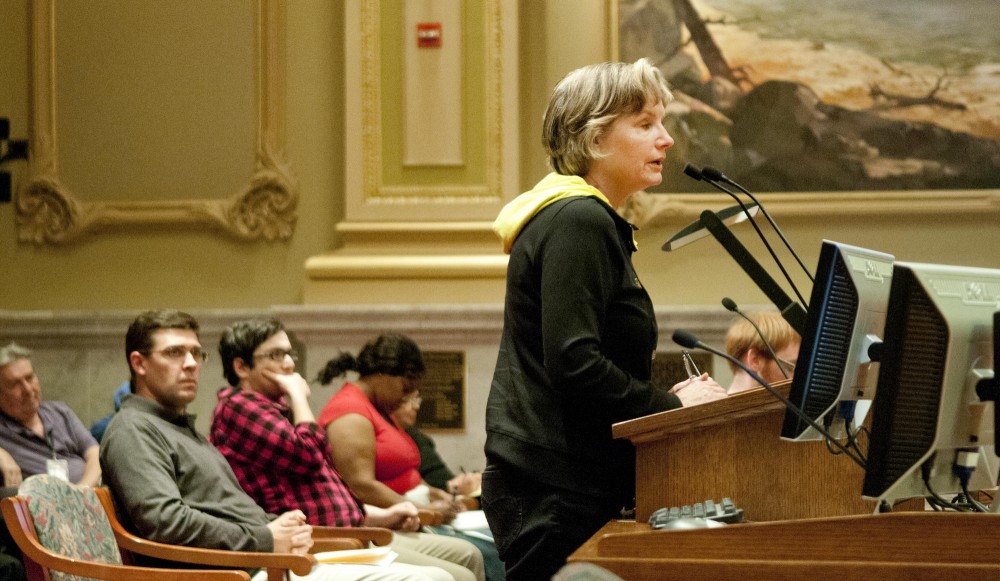Plans to limit access to public plazas in Minneapolis were delayed once again Wednesday.
The City Council resolution — which council President Barb Johnson tried to bring to a vote April 13 at the full City Council meeting — has been criticized by opponents saying it targets protestors in the Occupy movement and unfairly punishes homeless people who use the plaza to sleep.
A City Council committee heard public comment Wednesday about the proposed city resolution, which would prevent people from using the plazas from midnight to 6 a.m. and would prevent anyone from sleeping on the public plazas at anytime.
The council voted to have public discussion May 2 before it can go to the full City Council.
Osha Karrow, a member of the Occupy Movement, said the resolution would especially harm those using Peavey Plaza in downtown.
“I think you all failed to note or remember the homeless individuals in this city. On Peavey Plaza, many homeless individuals have camped there prior to [Occupy Minnesota’s] encampment there,” Karrow said during the meeting.
Numerous members of the Occupy Movement echoed Karrow, adding that the proposed resolution restricts their right to freedom of speech.
The meeting was another example of tension between the city and activists. Occupy protestors packed Mayor R.T. Rybak‘s office April 9, demanding a meeting after several reports of police brutality. Rybak held a meeting the next day.
Several City Council members also expressed their concerns about the proposed resolution.
City Councilwoman Betsy Hodges said the proposal is a “solution in search of a problem.”
“We have had sufficient regulation for years. But I think it’s not just unnecessary, actually, I think it’s just wrong,” Hodges said during the meeting.
She added that, even though the resolution is unnecessary, it warrants a full discussion now that “it’s on the table.”
City Councilman Cam Gordon, who represents Ward 2, one of two wards that encompass the University of Minnesota community, said the resolution needs to be looked at more closely before any decision is made.
“I think it’s better if we err on the side of getting more information, giving more people the opportunity to talk and give more of us on the council an opportunity to research this,” Gordon said.
Some wording issues in the resolution came up during committee discussion. It was unclear which plazas would be affected as well as how plazas would be affected.
The Riverfront Plaza, which is near the Federal Reserve Bank of Minneapolis and owned by the federal government, is currently fenced in, and the public isn’t allowed to use the plaza due to homeland security issues.
It was also unclear where Cedar-Riverside plaza is located. Andy Carlson, an official from the department of public works, said it could refer to two separate plazas, one of which is located on the West Bank in front of the Republic — a pub in Seven Corners. That plaza is used past midnight most nights as a seating area for customers.
Gordon said the council needs to consider the impact the resolution might have on “businesses and the other normal activities that people like to do on these plazas.”
Johnson voted to hold the public discussion in May and said the resolution was not meant to limit first amendment rights but rather provide equal access to public spaces.
“I’m concerned about public use in a city where we have 380,000 people that live here, 150,000 people that work in our downtown everyday and 32,000 people that live in our downtown,” Johnson said Wednesday.
“And when you have a city, you have to balance the interests of groups.”








